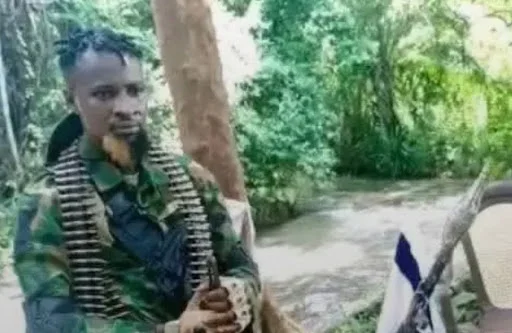Peace gradually restored in South East after long reign of gunmen
Deserted Imo, Anambra villages come back alive again
For nearly five years, the South-East region was gripped by violent attacks from criminal gangs known locally as “unknown gunmen,” who unleashed waves of killings, kidnappings, and destruction across the area. The worst-hit states were Anambra and Imo, where entire communities were sacked and residents forced to flee their homes.
The gunmen enforced illegal “sit-at-home” orders every Monday, paralysing economic and social life. They operated from fortified forest camps in Anambra’s Nnewi South and Ihiala areas — including Ukpor, Utu, Lilu, Orsumoghu, Mbosi, and Uli — and extended their activities into border towns near Umunneochi in Abia State.
Survivors of these camps described horrifying experiences. One victim from Lilu recounted: “In that forest, people are killed like chickens. Victims are tortured, and their cries are played to relatives to demand ransom.”
But after years of siege, the tide appears to be turning. Coordinated operations by security agencies, working alongside local vigilantes, have begun to reclaim territories once dominated by the gunmen. Many displaced residents are now returning to their homes as calm slowly returns to the region.
Uzodinma’s Security War and the Spread of Terror
The crisis first escalated in Imo State shortly after Governor Hope Uzodinma took office in 2020. The attackers, soon branded “unknown gunmen,” launched deadly assaults on security formations, public facilities, and civilians. In April 2021, the state’s Correctional Centre and Police Command headquarters were attacked, leading to the escape of over 1,500 inmates.
As the violence intensified, Uzodimma blamed political opponents for sponsoring the unrest, promising to expose them. He later withdrew the threat, saying security agencies were handling the matter. Meanwhile, the gunmen shifted their operations from urban centres to rural communities, where they entrenched themselves deeply.
Communities Under Siege
In Orsi Local Government Area, nearly all communities were occupied by the armed gangs. Schools, markets, and churches were shut, while residents fled in fear. Buildings owned by politicians were seized and converted into operational bases. The once-bustling commercial hub of Edenta became the epicentre of terror, with reports of killings, kidnappings, and even cannibalism.
The breakthrough came in n March 2025, when security forces overran the notorious Produce Camp in Edenta, killing over 20 fighters. Over 200 human skulls and bones were recovered from the site. The success of the operation enabled the reopening of the Orsu Police Divisional headquarters, long abandoned after being destroyed by the militants.
Hope and Cautious Optimism
Following the operation, residents have begun returning to their ancestral homes. In Orsu-Ihiteukwa, returning youths were recently seen cleaning up abandoned areas, singing and dancing in celebration.
Geoffrey Okereke, an indigene of Ubahaezike, confirmed that peace had returned: “We are back home. There hasn’t been any attack for some time. We even held a burial last week. Nothing feels like home.”
Similarly, Chibuike Uba from Amaruru said the community celebrated its New Yam Festival for the first time in years. “Those who wanted to destroy our land are gone. Peace has returned to Orsu,” he said.
Calm Returns to Okigwe
In Okigwe, the arrest of notorious gang leader Ifeanyi Eze Okorienta, also known as Gentle De Yahoo, by the military, has brought relief to residents. His gang had terrorised the area for years, engaging in kidnappings and killings.
Since his capture, communities such as Aku, Ihube, Ezinnachi and Umulolo have begun to stabilise. Local leaders are working to revive economic and social activities. Businessmen from the area have announced plans for a ₦5 million Table Tennis Tournament to unite residents and encourage resettlement.
After years of bloodshed and despair, the people of Imo and Anambra are finally breathing a sigh of relief. The hope now is that the fragile peace taking root in these communities will endure.


